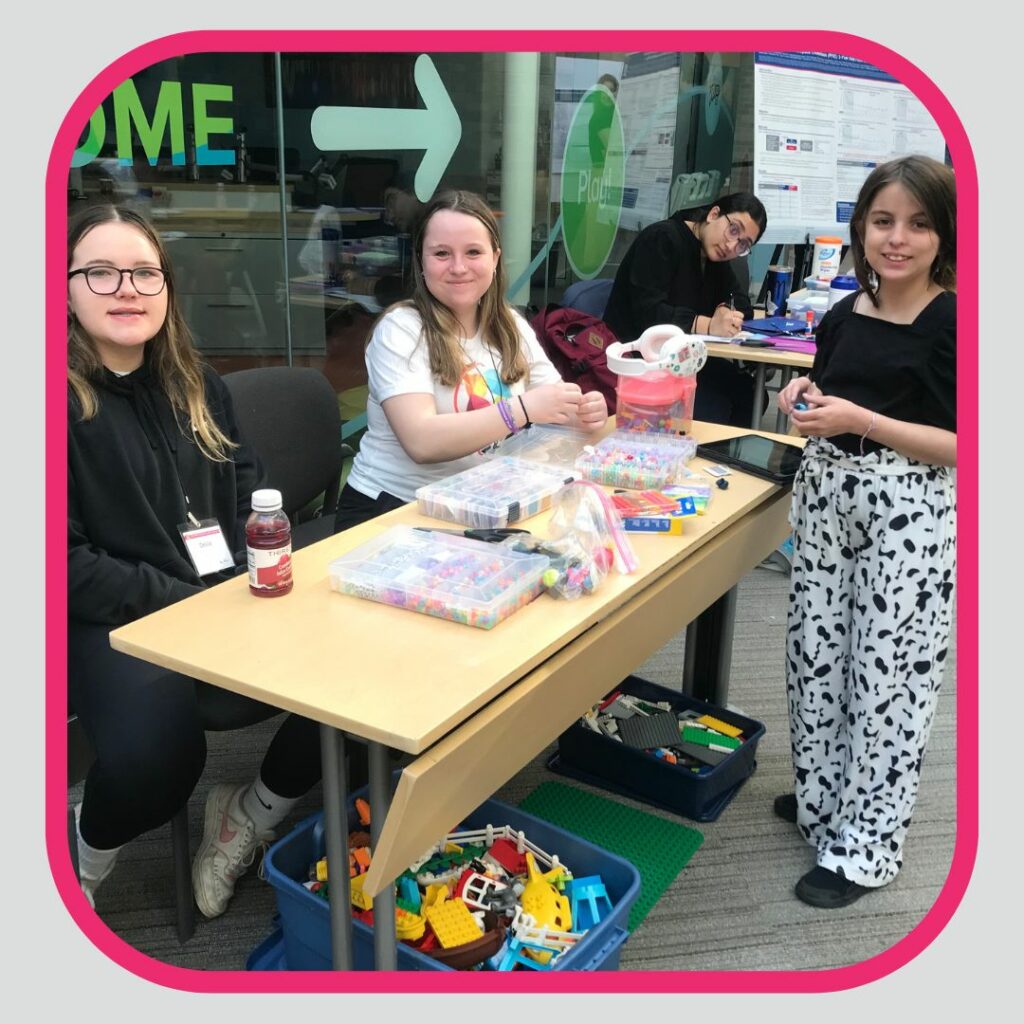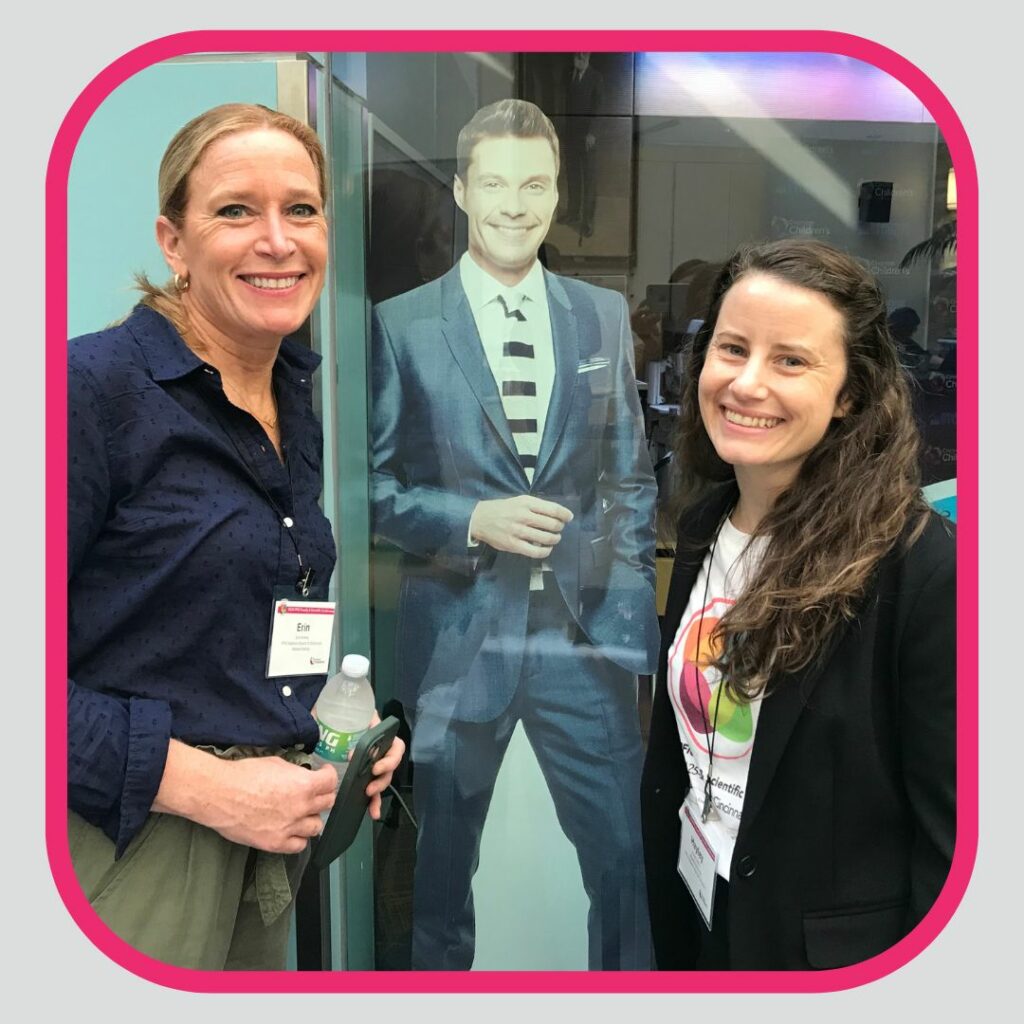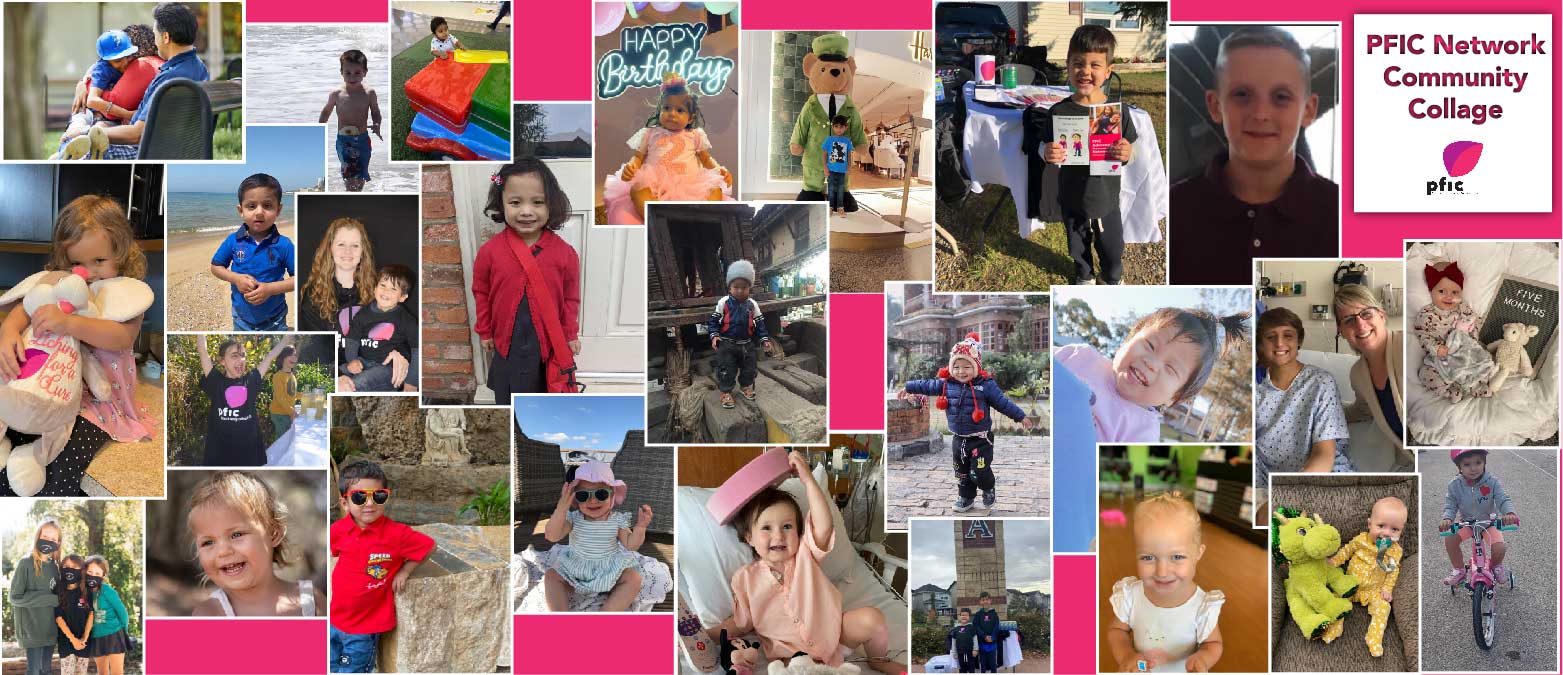2024 Conference Summary Report
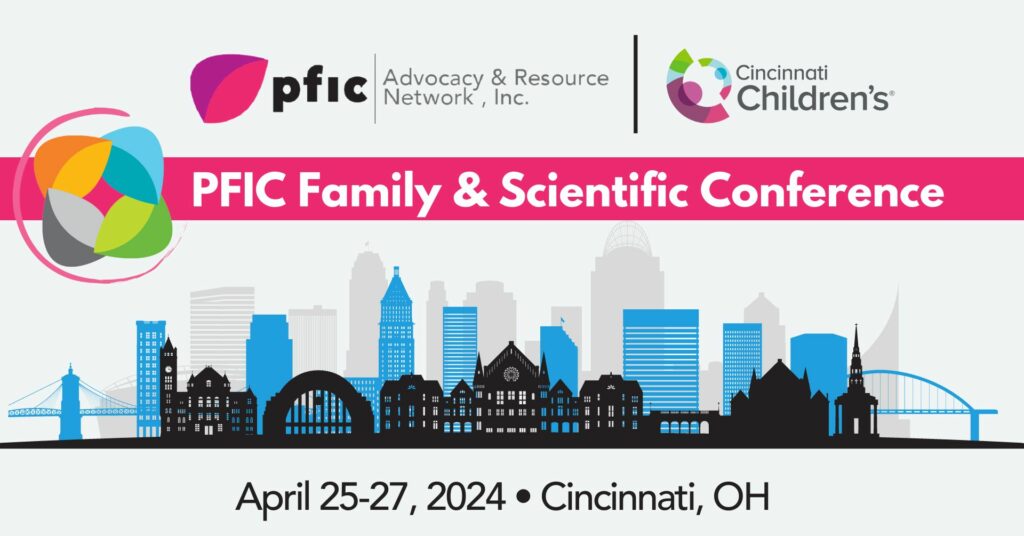
The 2024 PFIC Family & Scientific Conference in April was our largest conference yet! We had 138 in person attendees and over 50 virtual attendees. Attendees came from all over the world, including Canada, Brazil, Japan, the UK, and the Netherlands. Overall, it was an energizing and moving weekend bringing together all facets of the PFIC world: families, researchers, clinicians and industry stakeholders.
Conference Presentations
We used this conference to explore a new format: having both Family Sessions explicitly designed for a lay audience and Research Workshop Sessions, which featured high-level scientific talks aimed specifically at the scientific and medical audience.
Family Sessions
The Family Sessions covered a broad range of topics, from an overview of currently available PFIC treatments to emerging data on PFIC diagnosis in adults. We also got to hear an excellent primer by Dr. Aki Asai on gene therapy and its possibilities as a future treatment for PFIC. If you were unable to attend the conference, all Family Sessions are now available to watch in our Educational Webinar Library!
Resesarch Workshop Sessions
During the Research Workshop Sessions, researchers and physicians latest disease models, including human stem cells, mice and zebrafish and models for new types of PFIC. They also discussed some exciting advances in gene therapy, including ways to target a variety of different types of liver cells. While the Research Workshop presentations were scientific talks aimed at experts in the field, Dr. William Balistreri and Dr. Chunyue Yin, from the Center for Undiagnosed and Rare Liver Disease, provided an excellent lay-friendly summary that is now available in our webinar library. To foster an environment where researchers feel comfortable sharing unpublished work in the spirit of open science and collaboration, we did not record the Research Workshop presentations.
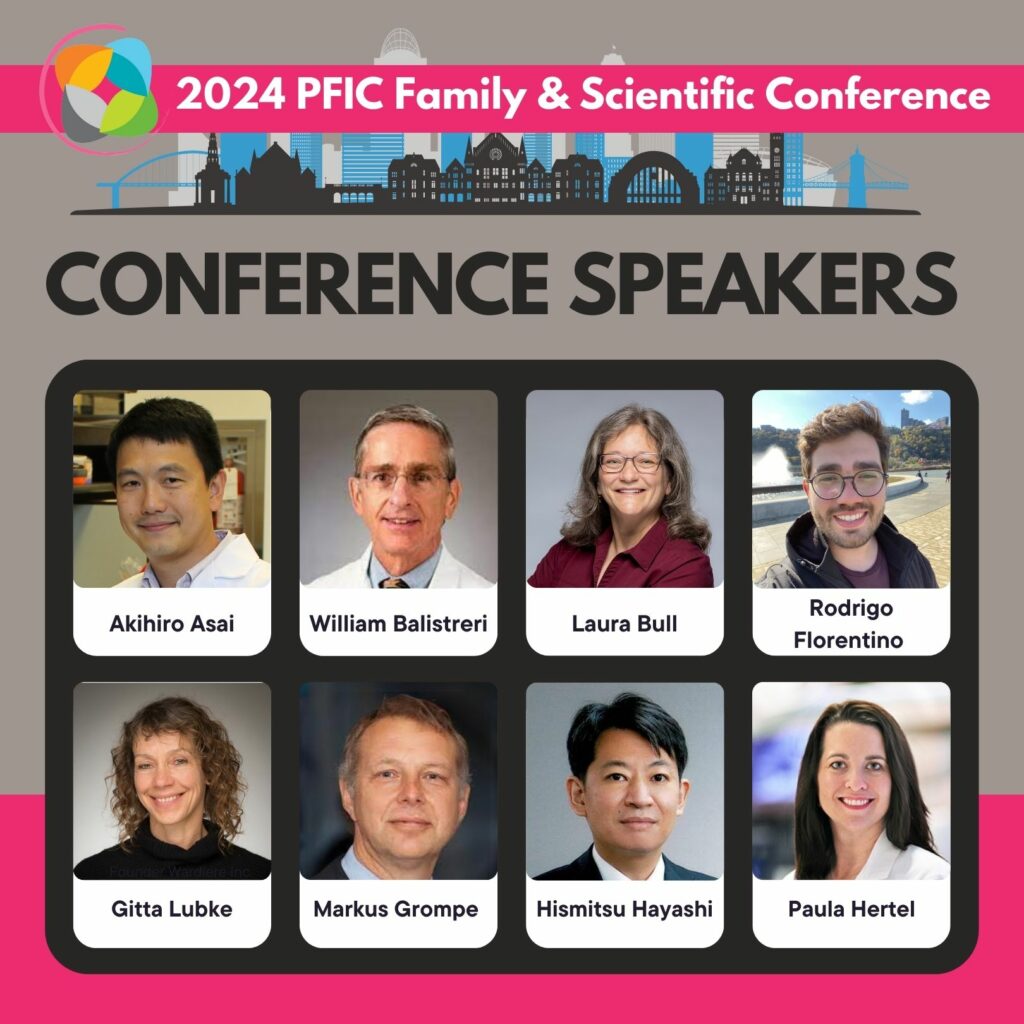
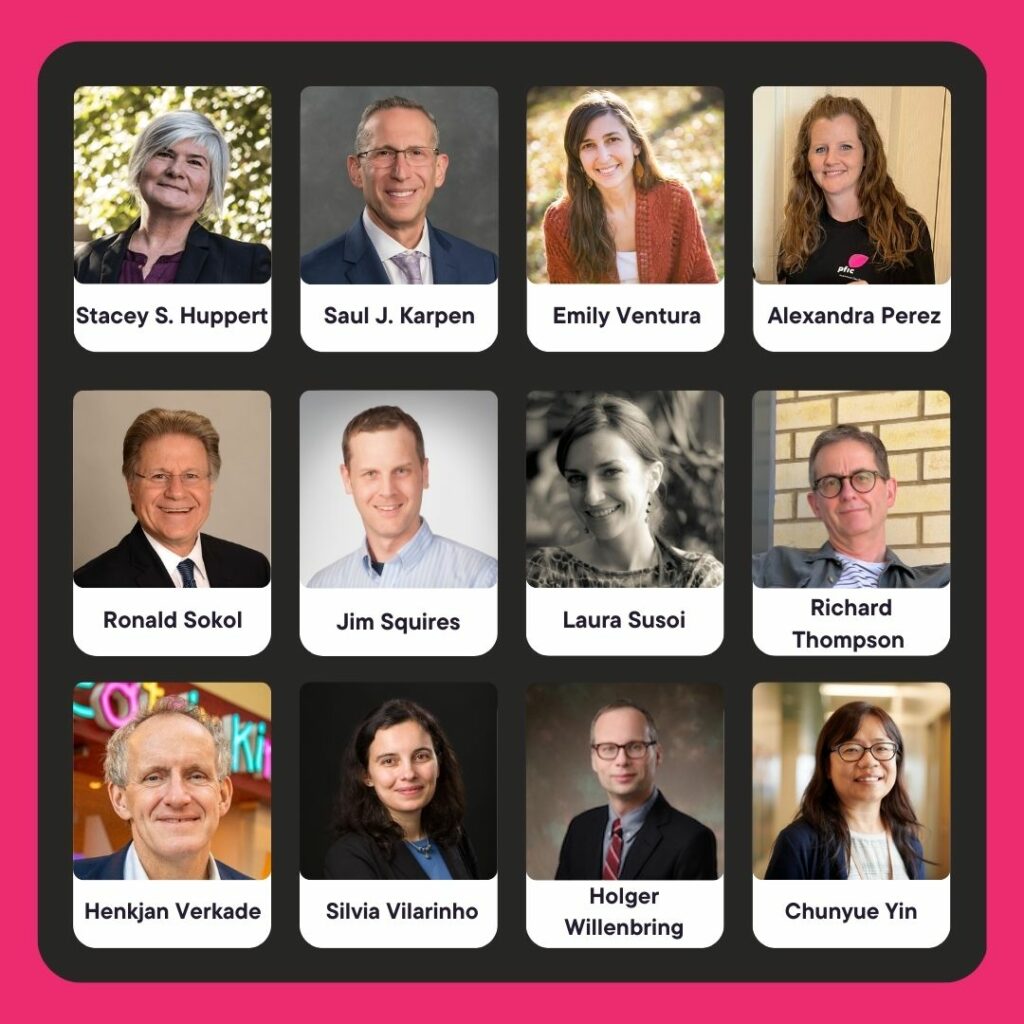
Roundtable Discussions
In addition to the Family and Research Workshop sessions, we held two, 2-hour roundtable discussions. These discussions involved all of our conference attendees and focused on two key themes: improving current clinical management of PFIC, and research in future therapies.
- Roundtable 1: Improving current clinical management of PFIC
During the first roundtable, we got a full look at our new PFIC Treatment Experience App (TEA). TEA is a collaborative effort created by PFIC families and clinicians as part of Project IMPACT. It is designed to be both a treatment information resource for PFIC families & providers and an ongoing data collection tool to help us better understand people’s experiences with those treatments.
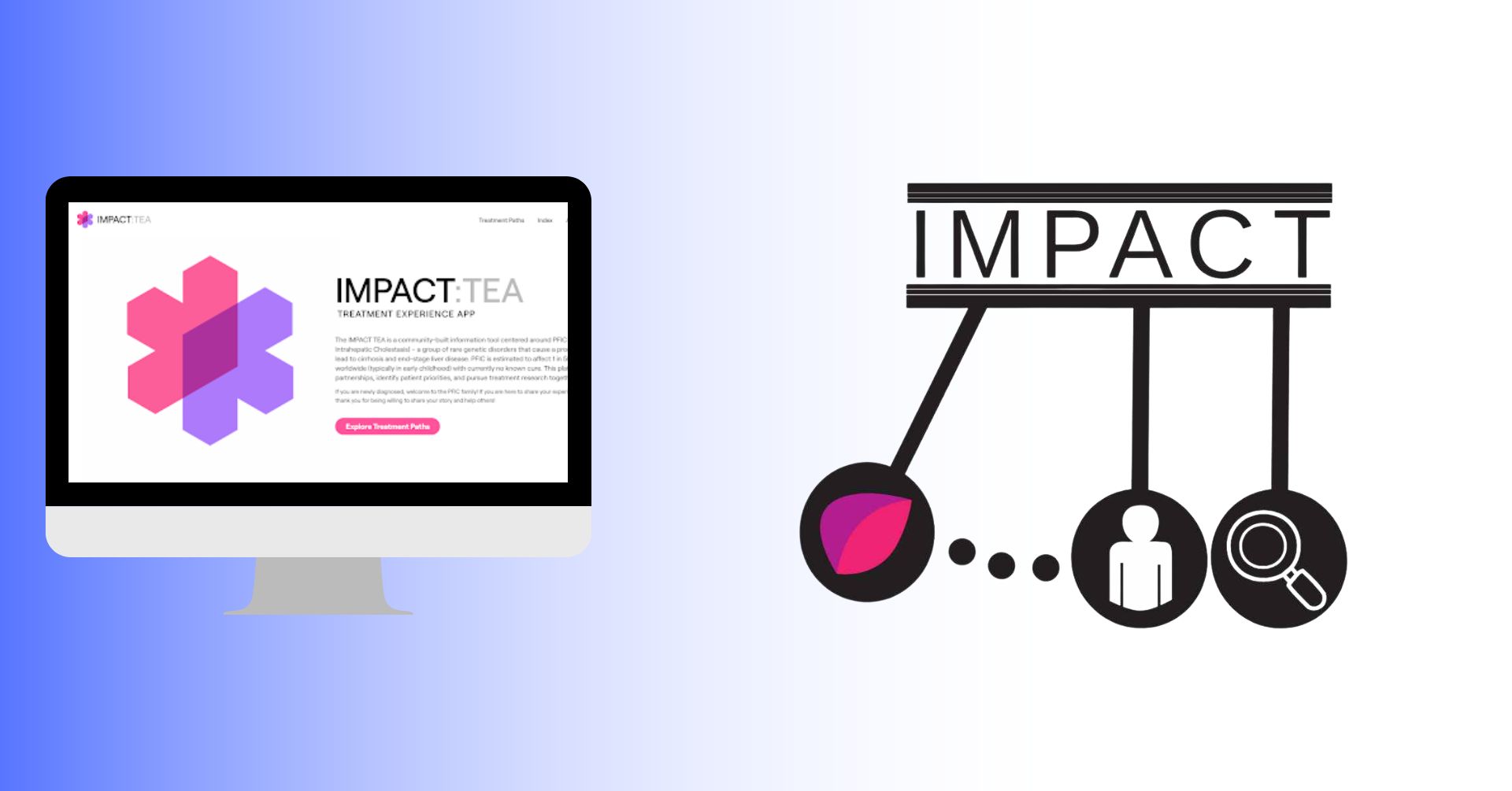
- Roundtable 2: Research in Future Therapies
As researchers design the next generation of treatments for PFIC, they are interested in understanding how patients evaluate risks and decide whether to participate in trials for experimental therapies. One of our roundtable discussions at the conference was designed to explore these questions of risk tolerance and decision-making. Here are a few key takeaways from the discussion:
- . Some parents reported that they are reluctant to “rock the boat” and try risky or experimental interventions when their child is in a stable condition
- Some families spoke to the complexity of making major treatment decisions on behalf of a minor, sharing that the decision-making process feels more emotionally fraught when making a treatment choice on behalf of their child, particularly when the treatment is irreversible.
- Reversibility was identified as an area of important consideration when weighing treatment decisions and trial participation.
- Multiple PFIC families also expressed the need for an improved informed consent process that is easier to understand without a medical or scientific background. Participants also suggested including information about a treatment’s reversibility in the informed consent.
Following the TEA presentation, we facilitated a discussion to explore knowledge gaps in treatment decision-making that could be addressed by research. To initiate the discussion, we posed two questions to participants:
1. What are the biggest obstacles to reducing variability in care?
2. In your experience with PFIC, have you been faced with a situation where you had to choose between two options, and if so, how did you decide?
Discover how participants responded by checking out the conference IMPACT presentation and roundtable discussion summary!
Outcomes and Outputs
One of our goals from the conference was to stimulate new collaborations and partnerships in PFIC research. After Dr. Gitta Lubke’s presentation on the PFIC Network Patient Registry, several scientists encouraged us to explore publishing an article on our registry data and methods. We are excited to share that we partnered with a group of PFIC clinicians to write a descriptive summary of the registry and recently submitted the abstract to the NASPGHAN Annual Meeting. Ultimately, we hope to publish the descriptive summary in an academic journal by the end of 2024! We were also able to present findings from the roundtable discussions at the 2024 ESPGHAN Congress in Milan, allowing us to bring the community perspective to a wider audience of international PFIC clinicians and researchers.
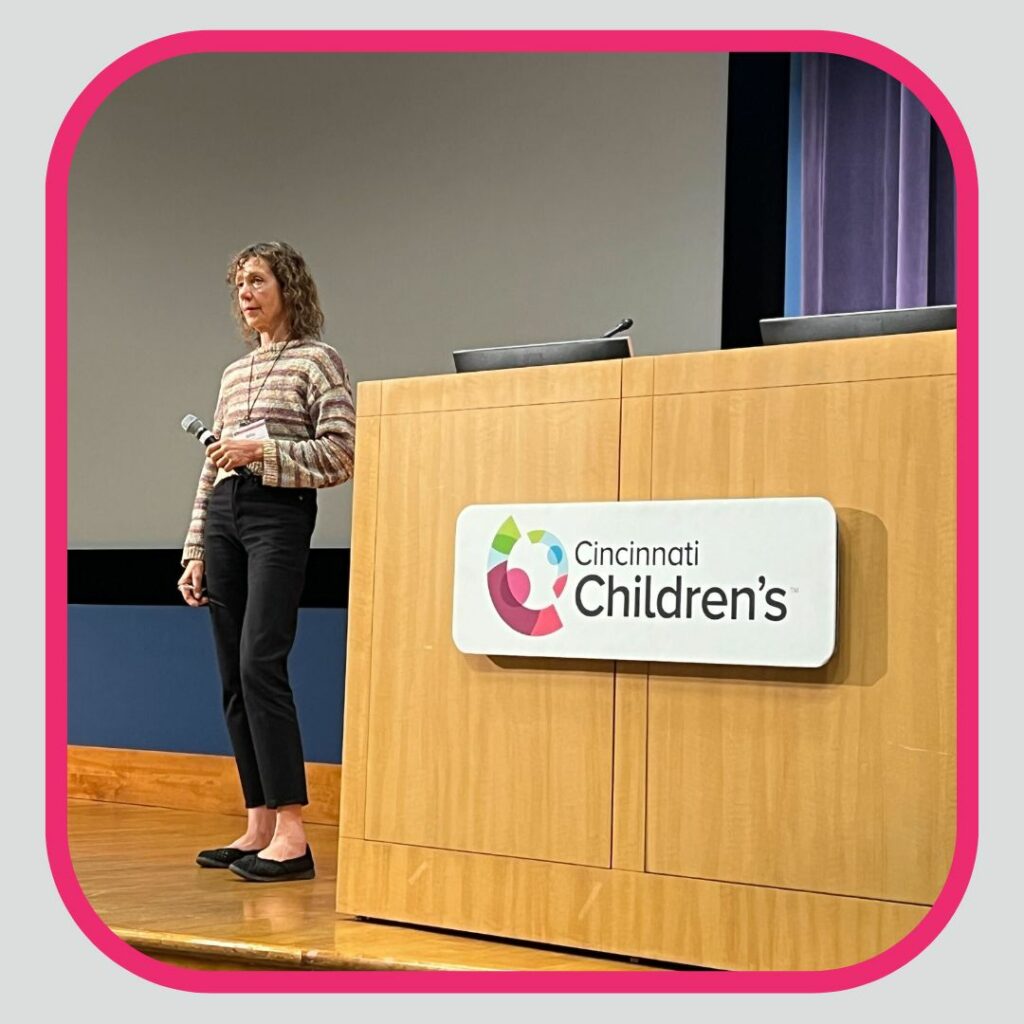
Community Connections
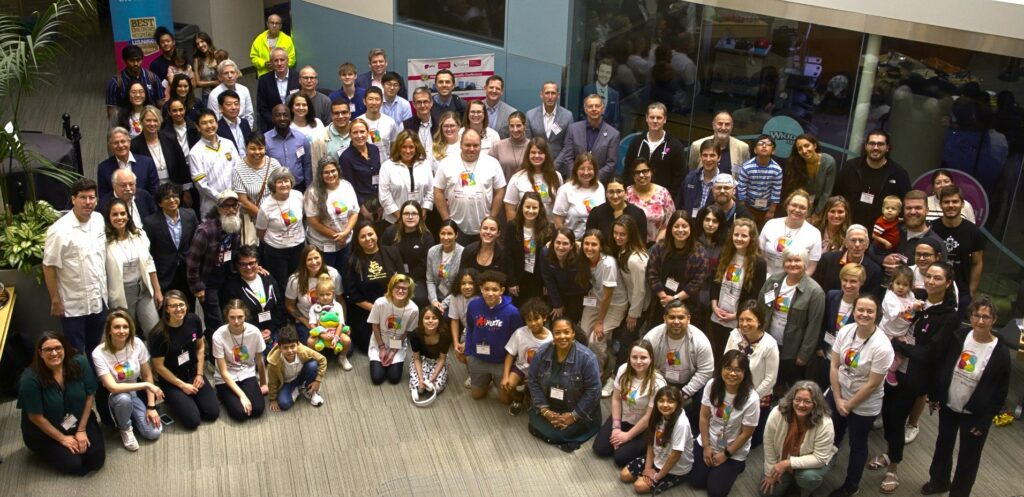
With a record number of in-person participants, this year’s conference was a powerful moment of connection across all parts of the PFIC community:
- Thank you to patients and families for a willingness to be open and vulnerable and for trusting other attendees with your deeply personal stories and struggles.
- Thank you to researchers and clinicians for taking time to share your expertise, answer questions, and engage with PFIC patients and families in a meaningful way.
- Thank you to our sponsors and industry stakeholders for supporting this event and for your interest in developing treatments for PFIC.
- Finally, a big thank you to our co-hosts Cincinnati Children’s Hospital and the many volunteers who helped make this event possible.
We hope you can join us next year in Denver, Colorado!
